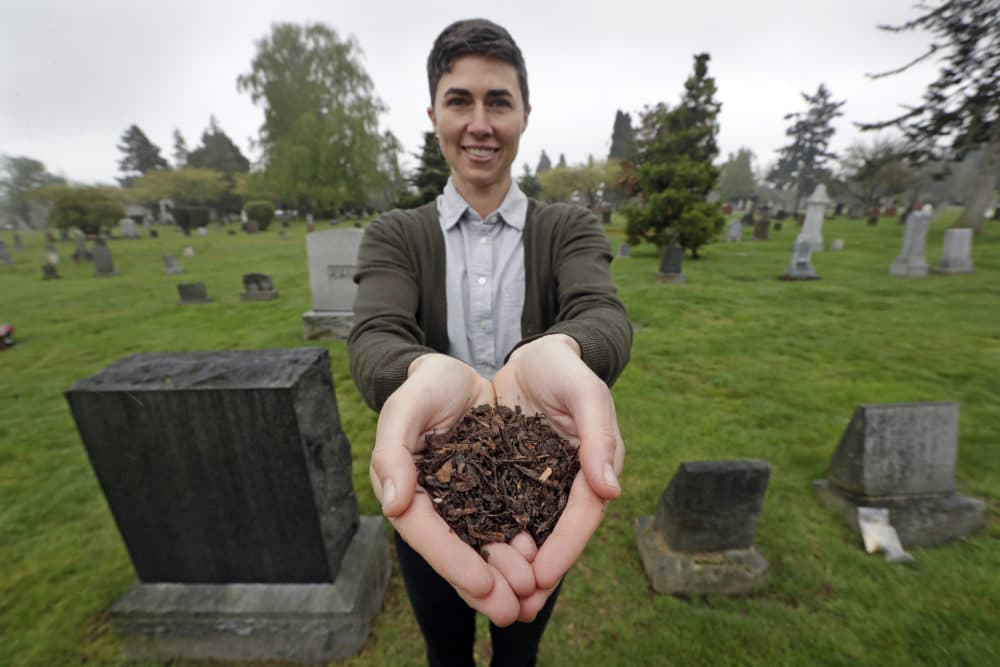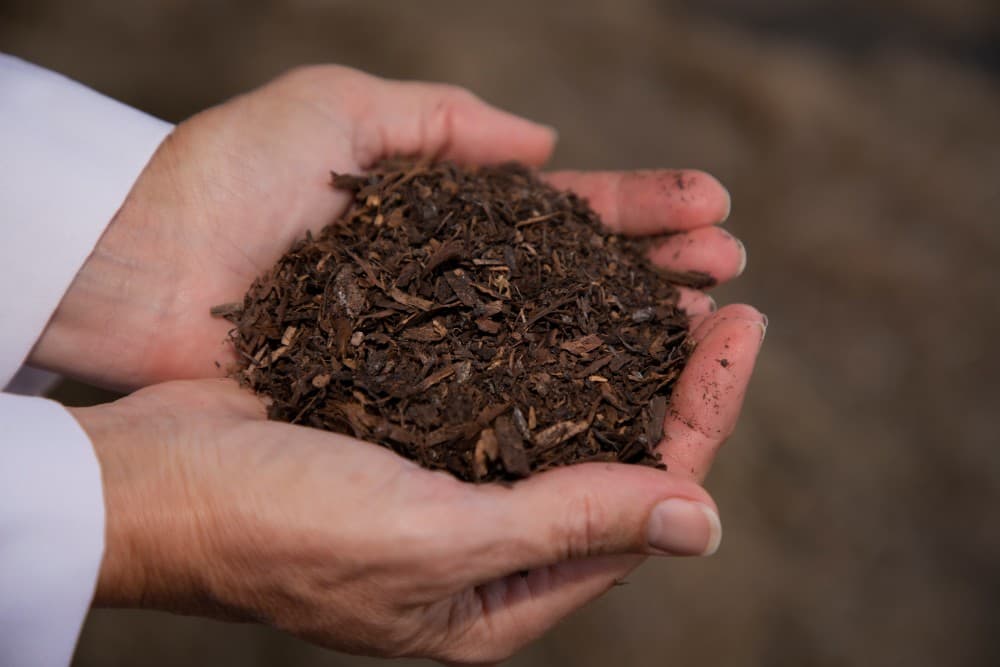Advertisement
Soil Instead Of Ashes: Human Composting Is About To Become Legal In Washington State
Resume
There are typically two ways to say goodbye to a loved one: burial or cremation. But in Washington state, there will soon be a third option.
Washington is set to become the first state to legalize human composting, formerly known as natural organic reduction, which turns bodies into soil within 30 days. Gov. Jay Inslee is expected to sign the bill into law next Tuesday.
Human composting was first developed by Katrina Spade when she was studying architecture at UMass Amherst. Spade, founder and CEO of Recompose, a Washington-based human composting company, researched the idea further with Washington State University's crop and soil sciences department. For the last few years, she has been working with state agencies to ensure the safety of the procedure. It will cost about $5,000, she says — far less than most burials.

Here's how the process works:
- A carbon- and nitrogen-heavy mixture of wood chips, alfalfa and straw is put into a container called a vessel.
- The body is then laid on top of the vessel and covered with the same mixture. To make sure enough oxygen is getting to the body — allowing microbes to decompose it — a fan system is set up to provide air.
- The body breaks down within a month, and what's left are two wheelbarrows full of soil.
The idea of composting dead bodies first came to Spade when a friend told her about how some farmers had been recycling their animals back into the land for decades. "It was actually quite like a light bulb going off," she tells Here & Now's Robin Young.
"For some, it was a way to return to the natural cycles to give back whatever nutrients we have in our bodies when we die, even if it's just a little bit, rather than burn that nutrient up or bury it in the ground."
Katrina Spade
"I started looking at the sort of relationship we have to death in this society," she says, "and I started to think about whether we could have places in our cities where we had a more conscious relationship with death and could think more about our mortality and our place in the natural cycles."
To prove the process was safe and effective not just for farm animals, but for humans as well, six individuals donated their bodies to the study at Washington State University. They did so for a variety of reasons, Spade says.
"For some, it was a way to ... give back whatever nutrients we have in our bodies when we die, even if it's just a little bit, rather than burn that nutrient up or bury it in the ground," she says. "The idea of being able to give it back to this planet that supports us our whole lives — I think it was a little bit of that."
Many people aren't enthusiastic about the prospect of burial or cremation, says Spade. For them, human composting offers a viable alternative, and while some may view the process as ghoulish, it does help alleviate the problem of decreasing burial space.
Human composting will still offer places for families to gather to mourn their loved ones, just like a burial or cremation. They just won't feel like a typical funeral home, says Spade.

"Recompose is going to have rooms in our facility where families can spend a little extra time with the body itself," says Spade. "The idea is really for families to do what feels right for them."
Ideally, families would feel comfortable enough to have a service at Recompose — and potentially even participate in washing the body and laying it into the vessel, she says. Families would then be welcome to take home as much of the soil created over the course of the month-long composting process as they want.
"We're just getting to return to the earth … what is technically just dirt — but of course emotionally, very special," says Spade. “But [we want] to make sure no one feels that they have to take it all, if that's not something that works for them.”
Marcelle Hutchins produced this interview and edited it for broadcast with Todd Mundt. Jackson Cote and Jack Mitchell adapted it for the web.
This segment aired on May 16, 2019.

